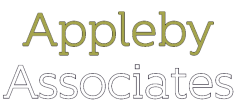The Good News About Interviews – Tip 6 of 10
Going to an interview can seem a daunting prospect, so here is this week’s tip that you can take to improve the probability of your career success.
Tip 6 of 10: Interview – Managing the Process – Dealing with Tricky Questions
What constitutes a tricky question will vary from person to person. Be aware of what the potentially difficult areas for you are and be ready for them. Examples include gaps in the CV, protracted illness, termination of previous employment, lack of qualifications, lack of directly relevant experience, several jobs in a short period.
You must always answer truthfully any question you are asked, but you need not volunteer information that will count against you. For example you need not say, unless you are asked, that you were dismissed, but if you are being interviewed for a post as a lawyer it would be dishonest not to say that you were not yet qualified to practise in the UK. You can, of course, choose your wording, for example avoiding the word ‘dismissal’ and substituting perhaps ‘a mutual agreement to part’.
Don’t be evasive. Be positive in all cases, for example by showing what you have learned from the experience, be brief – don’t be tempted to over-justify – and move on with an open question. For example:
‘I see there is a gap in your career history three years ago’
‘Yes, I took a year off to travel, it’s something I wanted to get out of my system, and I found it really developed my cultural understanding and improved my communication skills. Tell me, will there be an opportunity for me to use my languages in this role?’.
Generally awkward questions are not asked to put you under pressure or to make a fool of you, but to test some aspect of either your capabilities or your fit to the organisation. Some less experienced or well-trained interviewers will ask off-the-wall questions. Don’t be panicked into an answer, again think about how you can use the question to illustrate some positive aspect of your personality or skills. Take time to think, you could say ‘I’ve never been asked that before, I’d be interested in what lies behind the question’.
If the question is excessively personal and you do not wish to answer, you might ask, politely, in what way the answer relates to the post under discussion.
So performing well in the interview might not be as daunting as you first thought and may not require anything more than a fresh perspective and way of looking at it. It sounds simple and it is, it’s just not always easy, especially when trying to do it alone.
For practical advice on how to make the change without being overwhelmed contact us to discuss how we can help.

